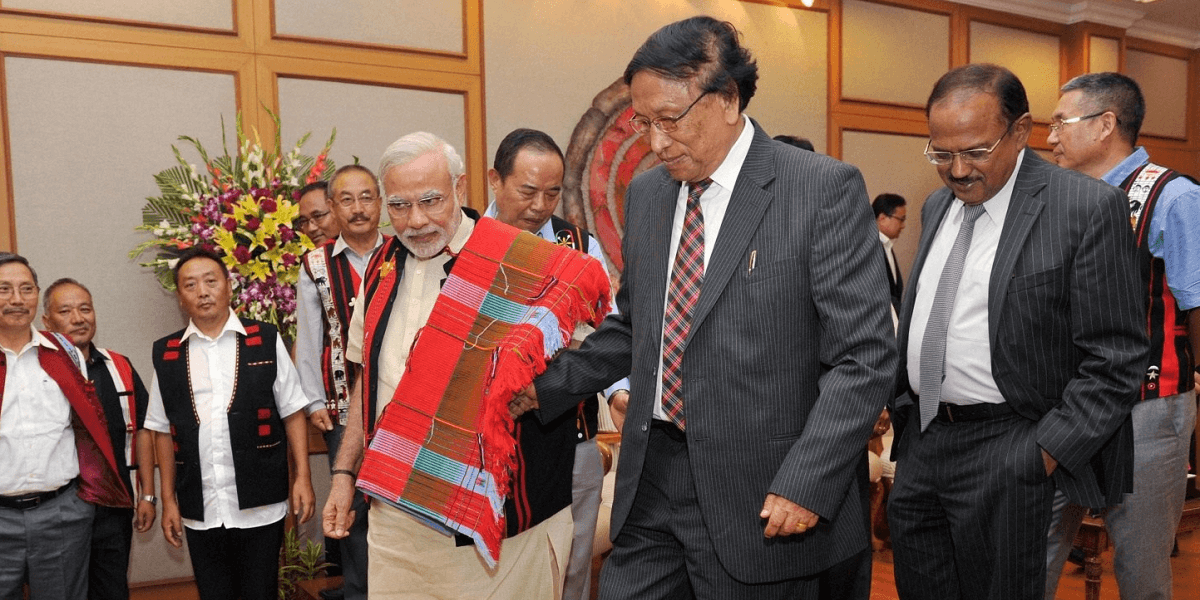The National Investigation Agency (NIA) has alleged that the “China-Myanmar” module of the Naga outfit, National Socialist Council of Nagaland-Isak-Muviah (NSCN (I-M)), aided two banned Meitei outfits to infiltrate into India to fuel ethnic violence in Manipur. The outfit has refuted the claims as “misleading propaganda” and accused the Indian security forces of helping Kuki militant groups instead.
Naga Insurgent Group Helped Ban Outfits
In the chargesheet filed in a Guwahati court in March against five accused arrested last year in July in Manipur, NIA accused the NSCN-IM in Myanmar of helping Kanglei Yaol Kanba Lup (KYKL) and People’s Liberation Army of Manipur (PLAM), two banned Meitei outfits, to let their cadres enter India to carry out terrorist attacks.
Naga Insurgent Group Helped Meitei Outfits To Destabilise Manipur: Anti-Terror Agency NIA
— Debanish Achom (@debanishachom) May 15, 2024
NIA said transnational conspiracy hatched by Myanmar-based leadership of "terror outfits" to destabilise Manipur. NSCN(IM) refutes allegations.https://t.co/bxbfxJWrtu via @ndtv #Manipur pic.twitter.com/xKRzWmO6HL
The outfits are said to have promised infiltrators a safe passage with arms, ammunition, explosives, and other terrorist hardware to Manipur-based terror outfits and prohibited organisations. Additionally, the outfits were tasked to “identify, recruit and train impressionable youths and get them involved in the ongoing violence with the larger goal of destabilising the security situation in Manipur and to further wage a war against the Government of India,” the NIA said.
NIA claimed that M. Anand Singh, the main accused, conspired criminally with A. Kajit Singh, Keisham Johnson, L. Michael Mangangcha and K. Romojit Meitei, the four other conspirators, planned to undertake violent terror attacks targeting the rival Kuki-Zo community using banned arms and ammunition. Singh also trained local youth to participate in the violence in Manipur and organised a weapons training camp for them.
NSCN (I-M) Hits Back
In a rejoinder, the outfit called the claims “misleading, cruel, and vicious.” It added that they were too far from the point of accuracy and morally unethical. The outfit said, “It is sensitive to the propaganda war waged by the Government of India (GoI) against NSCN who had signed a ceasefire with GoI and engaged in political talks for the last 27 years.”
The outfit accused the government agencies of hitting below the belt despite engaging in political talks for the last 27 years. It alleged that “Indian Security forces were extending logistics and material support to KNA (B) (Kuki National Army-Bangladesh) to wage war against the Metei revolutionary groups stationed in Myanmar.”
It further claimed that the Indian Security forces allowed Kuki groups operating in Manipur to enter Myanmar and fight with Metei revolutionary groups. Additionally, it stated that the Indian Security Forces “use the Kukis as frontal forces to engage in bloody discord against the Nagas, giving all logistics support to the Kuki militant groups.”
NSCN: "Naga Army had not taken a single step to fight against the Kuki National Army (B). Neither did we find the reason to go against People's Defence Force (PDF)" #NSCN #PeoplesDefenceForce #NIA #NagaArmy #KNA
— Ukhrul Times (@ukhrultimes) May 16, 2024
Must read | https://t.co/EF3YUWJCAF pic.twitter.com/rgQSrtMeU4
NSCN-IM, Manipur Violence
NSCN-IM is a Naga insurgent group that signed a ceasefire pact with the Central government in 1997 and a framework agreement with the Narendra Modi-led government in 2015. The outfit envisages a “Greater Nagaland” to include all Naga-dominated areas in the states of Assam, Arunachal Pradesh, Manipur, and Nagaland.
The NIA chargesheet links the group to the ethnic violence that broke out between the Kuki-Zo and Meitei communities in Manipur last May, killing over 220 people and displacing nearly 60,000. Thousands of people continue to live in relief camps in the aftermath of the violence triggered by demands for tribal status by the Meiteis and opposition to the demand by the tribal Kukis.

